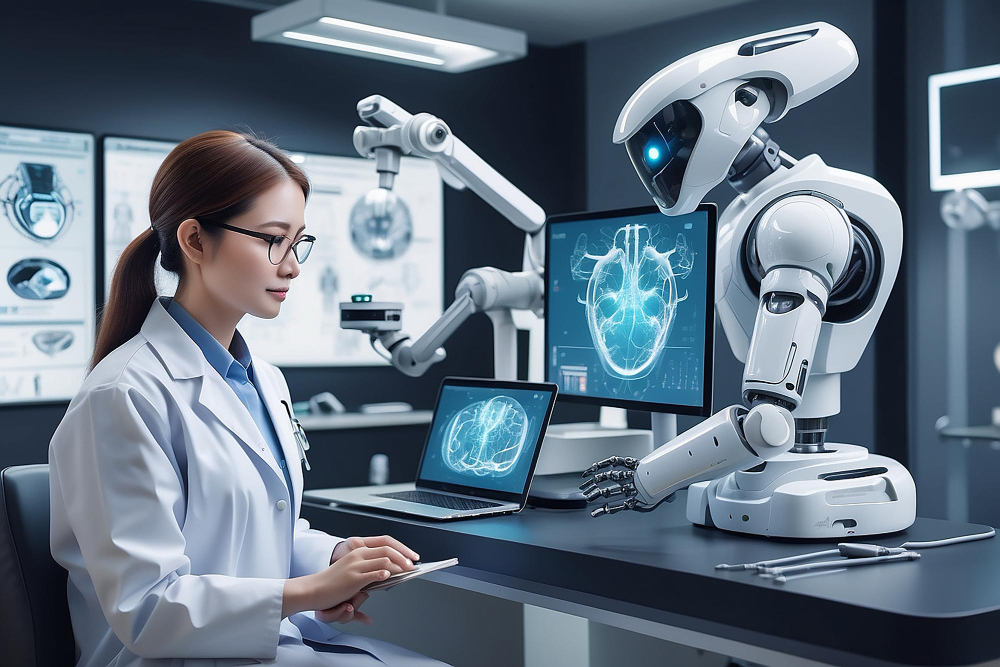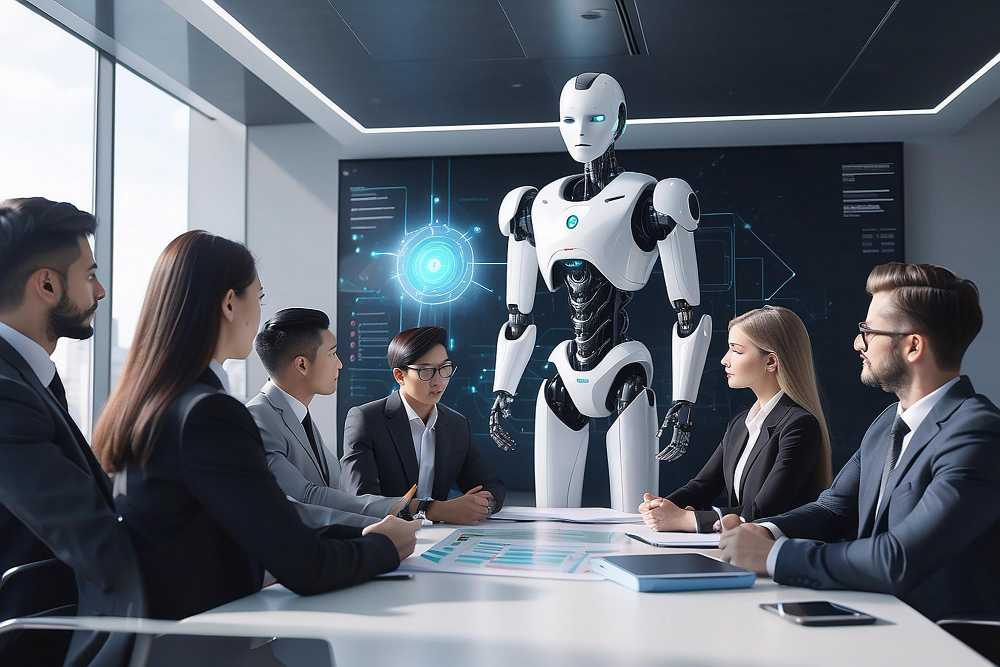Artificial intelligence (AI) is rapidly transforming the landscape of Human Resources (HR), challenging traditional perspectives on work, talent, roles, and skills. As businesses seek to adapt to this transformative technology, understanding how to effectively implement AI in HR can set organizations apart in a competitive landscape.
The Rise of AI in HR

A recent Gartner survey conducted in January 2024 revealed that a staggering 38% of HR leaders are already piloting, planning implementation, or have already implemented generative AI (GenAI) in their HR processes, up from a mere 19% in June 2023. This significant increase highlights the growing urgency for HR departments to embrace AI and leverage its potential to enhance efficiency, improve decision-making, and gain a competitive edge.
AI: Augmenting Human Potential, Not Replacing It

One of the most common concerns surrounding AI in HR is the fear of job displacement. However, it’s crucial to understand that AI is not designed to replace human workers; it’s here to augment their capabilities and empower them to focus on higher-value tasks. Leading organizations implementing AI and intelligent automation report substantial improvements in ROI and productivity, achieved without significant layoffs. The true power of AI lies in its ability to:
- Eliminate unconscious bias in job descriptions and candidate screening through advanced analytics.
- Automate routine tasks such as document delivery and onboarding processes, freeing up HR professionals’ time for more strategic initiatives.
- Personalize employee training using interactive AI solutions that adapt to individual learning styles.
- Gain deeper insights into employee sentiment and engagement through AI-powered analytics.
- Identify potential risks of burnout and proactively address employee well-being.
- Optimize HR budgets by streamlining processes and providing actionable insights for better decision-making.
Read this blog for more insights:– AI and Machine Learning Integration: Workday’s continued investment in AI and ML to improve predictive analytics, talent management, and operational efficiency.
Implementing AI in HR: A Strategic Approach

For HR leaders looking to embark on their AI journey, a structured approach is essential. Here’s a three-step framework to guide successful AI adoption:
- Distinguish Reality from Myth: Debunk common misconceptions about AI in HR, such as the myth that AI will replace employees.
- Establish AI’s Potential and Benefits: Identify how AI can address specific HR challenges and align with your organization’s goals.
- Assess and Score AI Solutions: Evaluate AI solutions based on criteria like governance, workforce readiness, risk management, and vendor landscape to ensure suitability for your organization.
The Future of AI in HR

As AI technology continues to evolve, we can expect even more sophisticated applications to emerge in the HR domain. Virtual assistants and chatbots will become commonplace, further streamlining HR processes and enhancing the employee experience. AI-powered talent marketplaces will revolutionize recruitment, connecting organizations with highly skilled candidates more efficiently.
However, it’s important to acknowledge the ethical considerations surrounding AI in HR. Ensuring data privacy, mitigating bias in algorithms, and maintaining transparency in AI-driven decision-making are crucial aspects that HR leaders must address.
Check out this Blog – Cost-Effective HR Transformation: Can AI in SAP SuccessFactors Reduce Costs and Boost Efficiency and Development?
Conclusion:
AI presents a transformative opportunity for HR departments to become more strategic, data-driven, and future-proof. By embracing AI and implementing it thoughtfully, HR can play a pivotal role in attracting, developing, and retaining top talent, ultimately driving organizational success in the years to come.
Interested in how AI can revolutionize your HR processes? Contact us to explore our AI-driven solutions and discover how we can support your HR transformation journey.
FAQ
- What is the future of AI in HR?
AI will become increasingly integrated into HR technologies, including virtual assistants and chatbots, enhancing efficiency and automation in HR functions.
- Why is AI important to HR?
AI streamlines HR processes, boosts efficiency, and improves decision-making through advanced data analysis.
- What are the key benefits of AI in HR management?
AI benefits HR by enhancing recruitment, optimizing training, increasing employee engagement, and improving wellness programs.
- What is next for AI in recruiting and hiring?
AI will advance further, providing more sophisticated tools for talent identification and engagement, making the hiring process more efficient.
- How will AI impact jobs?
AI will automate repetitive tasks, allowing employees to focus on more strategic and high-value activities, transforming job roles.
Embrace AI’s transformative potential in HR and drive your organization towards future success.












